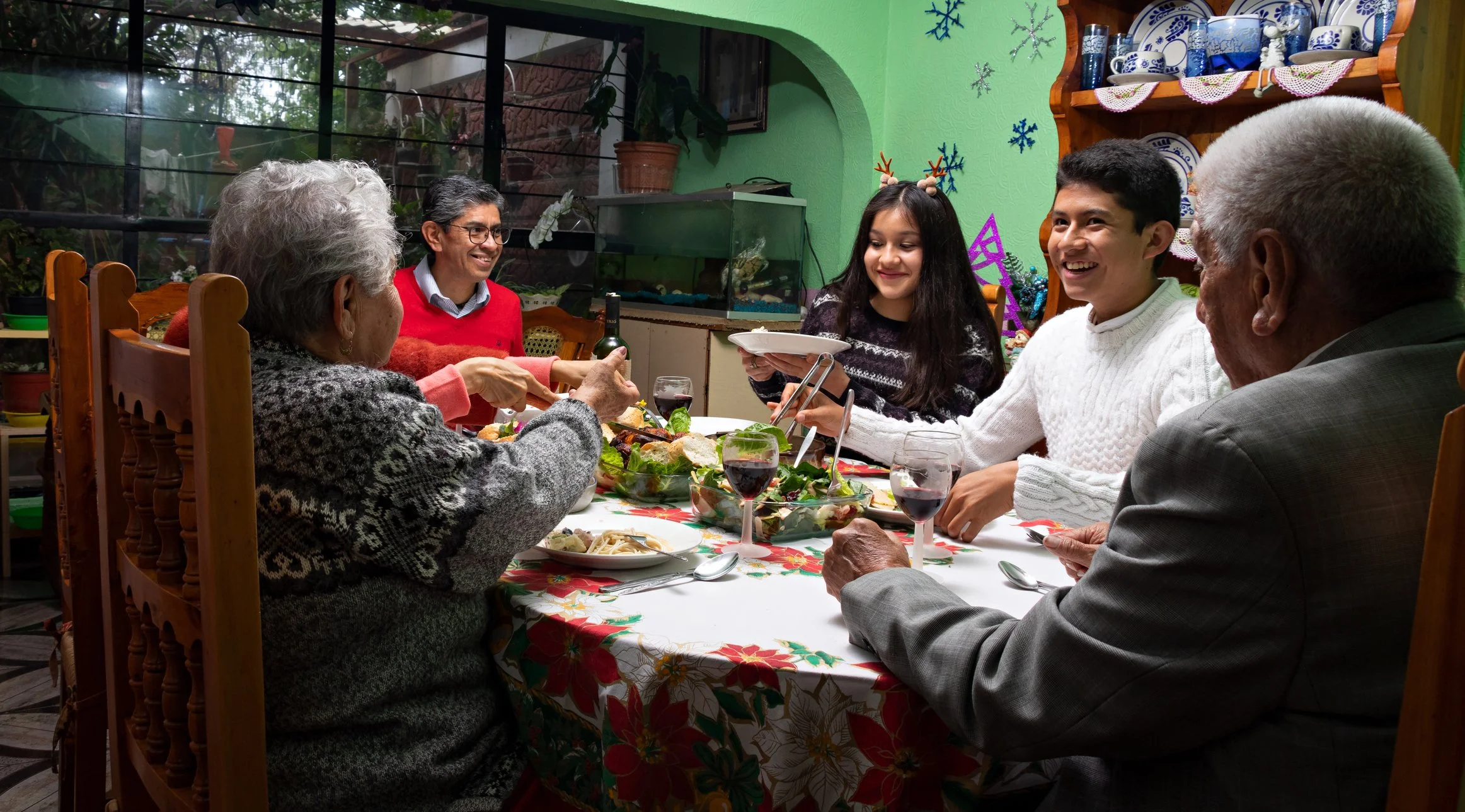Can Green Card Holders Sponsor Family Members?
Being a Green Card Holder
Being a green card holder is not the same as being a U.S. citizen. If you have a green card, you are considered a permanent resident of the United States. As such, you are eligible for some benefits of citizenship without yet becoming a citizen. These include:
Being legally authorized to live and work permanently in the United States
Being protected by the laws of federal, state, and local entities
Once you are a permanent resident, you are eligible to sponsor certain family members green card.
Which Family Members Can I Sponsor?
The family members you are able to sponsor depends on whether you are a U.S. citizen or a permanent resident with a green card. If you are a U.S. citizen, you can sponsor the following family members:
A spouse
Children
Parents
Brothers and sisters
If you hold a green card, you can sponsor the following family members:
Your spouse
Unmarried children
If you are applying to sponsor a family member as a green card holder, the process can be complicated., An immigration attorney can help.
The Process
Applying to sponsor a family member generally begins with the current permanent resident submitting form I-130, Petition for Alien Relative. There are preference categories for applicants, which will determine the order in which a green card will be granted. These preference categories include:
1st preference - Unmarried, adult child of a U.S. citizen
2nd preference – Spouse s of a permanent resident; unmarried children of a permanent residents of (any age)
3rd preference - Married child of a U.S. citizen
4th preference - Sibling of a U.S. citizen
Limits on Visas
In addition to the limited number of visas available per year, there are also limits imposed based on the country from which an applicant is immigrating. Only a certain percentage of visas each year may be issued to people from the same country. If a particular country has too high of a number of applicants in one year, then that country is considered “oversubscribed.” In that case, the Department of State would issue a cutoff date in order to limit the number of applications from that country.
Contact Hurtubise Weber Law
For more information or to schedule a consultation, get in touch with the team at Hurtubise Weber Law.
Do all relatives of US citizens qualify for green cards?
What Is a Green Card?
A green card is a document awarded to applicants by U.S. Customs and Immigration Services (USCIS) to provide permanent residency to an applicant. A green card is a stepping stone to U.S. citizenship. A common way for a person to obtain a green card is through a relative who is already a U.S. citizen. There are criteria to meet if you want to be sure that you qualify as a relative eligible for a green card in the United States. If you are unsure of whether or not you or your family member would qualify for a green card, contacting an immigration law firm such as Hurtubise Weber Law in San Francisco or San Jose, CA is a good way to get answers to your questions.
Family Member Categories
Under immigration law, there are two different categories of relatives.
The first category is “immediate relatives.” These include:
The spouse of a U.S. citizen
The unmarried son or daughter who is under the age of 21 of a U.S. citizen
The parent of a U.S. citizen at least 21 years old
The family preference category includes family members who are not considered “immediate relatives” under immigration law. Family members qualifying for the family preference category include:
The spouse or unmarried child under the age of 21 of a permanent resident
The unmarried adult child (age 21 and over) of a U.S. citizen
The unmarried adult child of a permanent resident
A married child of a U.S. citizen
A sibling of a U.S. citizen
Advantages of the “Immediate Relative” Category
The number of visas available to immediate relatives is not limited, so the immigration process for immediate relatives is faster, whereas members of the family preference category can have a wait time as long as 20 years in some cases. In addition, if you qualify as an immediate relative, you may also have the advantage of being exempt from certain bars to the adjustment of status process. Adjustment of status is possible for certain applicants who are those residing in the United States at the time of application. It allows them to remain in the United States while their application for a green card is being processed. In general, there are bars to the adjustment of status process that apply if an applicant has:
Engaged in unlawful employment in the U.S.
Failed to maintain lawful immigration status in the U.S. at any time
These bars generally do not apply to immediate relatives.
Contact Hurtubise Weber Law
For more information or to schedule a consultation, get in touch with the team at Hurtubise Weber Law.
Can an Unemployed US Citizen File For a Spousal Visa?
Filing for a Marriage-Based Green Card
If you are a U.S. citizen and your spouse is not, you can apply for a marriage-based green card in order to sponsor them for permanent residency. Sponsoring a spouse for residency requires proof of citizenship and marriage on the part of the sponsoring party. Another requirement for sponsoring a spouse for residency is financial responsibility. If you are unemployed or suffering financial hardship, there are guidelines you need to follow as a part of the process. Contacting an immigration attorney can help you make sure you fulfill all of the requirements for your application.
Affidavit of Support
An Affidavit of Support, also known as U.S. immigration form I-864, is a contract you sign to accept financial responsibility for a family member, or beneficiary, who is applying for a green card. The Affidavit of Support is an agreement between the U.S. Government and the financial sponsor stating that the sponsor is responsible for repaying certain public benefits after the green card is issued. In general, the document is valid until one of the following occurs:
One of the spouses dies
The beneficiary becomes a U.S. citizen
The beneficiary has worked 40 quarters in the United States
The beneficiary permanently moves out of the U.S.
Qualifying to Be a Financial Sponsor
In order to help your spouse obtain a green card, you need to qualify to be a financial sponsor. To do this, in general, you must meet the following requirements:
You must be a U.S. citizen or permanent resident, be 18 years of age, and reside in the U.S.
Your annual income must be 125% of the Federal Poverty Guideline level
If your income is below that level, you may be able to use your assets or those of the beneficiary, such as cash, stocks, bonds, and property, to meet the financial requirements
If you do not meet the minimum requirements alone, other adult members of your household can contribute their income and/or assets as long as they are willing to help support the family member seeking the green card.
A CoSponsor
If a situation arises where the spouse alone does not meet the income requirements to sponsor a beneficiary for a green card, they can consider getting a cosponsor. The obligations of a cosponsor are the same as the primary financial sponsor. They can be held responsible for reimbursing the government for use of public benefits as well.
Contact Hurtubise Weber Law
For more information or to schedule a consultation, get in touch with the team at Hurtubise Weber Law.
How Long Does It Take to Process a Fiancé Visa?
What is a Fiancé Visa?
A fiancé visa is a visa that allows a non-citizen to enter the United States legally for the purpose of marrying a U.S. citizen. Once the visa is granted, the couple has a 90-day period in which to get married in the United States, after which time they can apply for permanent residency for the non-citizen spouse.
Marriage Location
If you and your fiancé wish to get married in the United States, a K-1 visa may be a good choice for you. Many couples even choose to have a religious ceremony or celebration of marriage overseas before relocating to the United States. This may be acceptable ONLY IF it constitutes an unofficial ceremony and is not considered a legal marriage in the place where it is performed.
Steps to Acquiring a K-1 Fiancé Visa
In order to acquire a K-1 Fiancé Visa, the sponsoring citizen must first submit a form I-129F or Petition for Alien Fiancé. This is done with the local U.S. Citizenship and Immigration Services office. Currently, the processing time is approximately a year for this type of petition. The next step is for an interview to be scheduled at the U.S. embassy or consulate in the foreign national’s home country or country of legal residence. That step can take six months or even much longer due to interview backlogs.
Expediting the K-1 Visa
Some visas are eligible for premium processing, where an applicant can pay a premium for faster visa processing. Unfortunately, the K-1 visa is not eligible for premium processing. The best way to ensure fast processing is to obtain representation from an immigration attorney, who will use their expert knowledge of the law and process to help avoid unnecessary delays.
Contact Hurtubise Weber Law
For more information or to schedule a consultation, get in touch with the team at Hurtubise Weber Law.
Fiancé Visa or Marriage Visa: Which is Faster?
Why Is a Visa Needed?
If you are a foreign national and getting married to a U.S. citizen, citizenship is not automatically granted once the marriage takes place. This situation means eligibility for a green card through a fiancé visa or marriage-based green card. Which is a faster way to obtain legal entry into the U.S.?
Fiancé Visa
A U.S. citizen engaged to marry a foreign national who wishes to immigrate to the United States can petition to bring their fiancé into the country with a K-1 visa. This visa allows the fiancé to enter the United States and be married within a 90-day window, and then apply for adjustment of status in order to obtain a green card. Currently, the fiancé visa is taking on average approximately one year to be issued and involves an interview at a U.S. embassy or consulate abroad, which can take another six months or even longer be scheduled. After the interview the fiancé visa will be issued, allowing the spouse to enter the U.S.
Spousal Visa
If you are a U.S. citizen married to a foreign national, you can bring your spouse into the U.S. through the spousal visa process. This is currently taking on average 18 to 30 months to complete, depending on the foreign national’s country of residency.
Comparing the Two
A fiancé visa might be your best choice if:
You want to get married in the United States
You are not able to get married abroad
Your fiance does not desire immediate permission to work in the U.S. or to travel abroad once they enter the U.S.
A spousal visa might be your best choice if:
You want your spouse to be a permanent resident when they arrive in the U.S., in order to have permission to work within the U.S. and to travel abroad
Ultimately, the visa you choose to apply for depends on your priorities and your personal situation. Planning ahead is important to avoid delays and extra fees.
Contact Hurtubise Weber Law
For more information or to schedule a consultation, get in touch with the team at Hurtubise Weber Law.















